In the contemporary business landscape, senior professionals and executives often reach a point where the desire for deep intellectual inquiry and original knowledge creation surpasses what can be satisfied by traditional professional development or even an MBA. They face a critical dilemma: how to pursue the rigor of a doctorate without stepping away from a demanding, high-stakes career.
This is where the work life balance EFPM solution comes in — a doctoral path that doesn’t force professionals to choose between their job and their academic goals.
Why Traditional PhDs Don’t Fit Working Professionals
The traditional, full-time, residential PhD model, designed for aspiring full-time academics, presents an insurmountable barrier for these established leaders. In response to this specific need, premier business schools have engineered a distinct solution: the Executive Fellow Programme in Management (EFPM), also known in some institutions as the Executive PhD or Executive Doctorate.
This alternative was born out of necessity: to give professionals a real chance to pursue research, without sacrificing career growth or personal time.
Understanding EFPM: A Doctoral Path Designed for Professionals
The EFPM is a doctoral-level, non-residential program designed to cater to the academic needs of working executives, managers, faculty, and researchers. It is crucial to understand that the EFPM is not merely a “part-time PhD” but represents a fundamentally different pedagogical model. Its architecture, curriculum, and support systems are purpose-built to integrate with, rather than disrupt, a professional’s ongoing career.
The distinction between the EFPM and other advanced degrees is clear and intentional. Unlike the full-time Fellow Programme in Management (FPM) or a traditional PhD, which are primarily aimed at preparing individuals for full-time academic careers, the EFPM is for seasoned professionals seeking to apply advanced research theory and methods within their existing professional contexts.
Furthermore, the EFPM differs fundamentally from an MBA or Executive MBA (EMBA). While an MBA/EMBA focuses on applying existing business knowledge to develop strong leaders, the EFPM is centered on creating new knowledge through rigorous, original research. It is a terminal business degree that qualifies graduates in a specific area of expertise, opening pathways to publishing, high-level consulting, and thought leadership that an MBA does not.
Why EFPM Works: Designed for the Duality of Work and Study
One of the most attractive features of the EFPM is its design, which accommodates the unique constraints of working professionals. From a blended learning model to extended timelines and personalized mentoring, EFPM programs provide the right mix of structure and flexibility. This is essential for those looking to pursue a work life balance EFPM experience that actually supports their lifestyle and ambitions.
1. Flexible Curriculum and Modular Learning
Most EFPM programs follow a modular learning approach where coursework is delivered in blocks, typically scheduled during weekends or in short residential stints every few months. This ensures minimal disruption to work life while maintaining academic continuity. The blended mode also includes online classes, recorded lectures, and flexible assignments, allowing participants to pace their learning without pressure.
2. Mentorship and Individualized Research Support
Candidates are paired with faculty mentors who provide ongoing support throughout the research journey. These mentors are usually flexible in scheduling consultations, often making themselves available during evenings or weekends to suit the professional calendar of EFPM students. The mentorship model not only helps with research alignment but also enhances academic rigor.
3. Applicability to Real-World Business Challenges
Another strength of EFPM programs lies in their relevance to current industry scenarios. Candidates are encouraged to align their doctoral research with the strategic issues their organizations face. This alignment not only saves time and effort by enabling access to real-time data and practical insights but also ensures that the research contributes tangible value to their professional work.
4. Ideal Program Duration and Pacing
EFPM programs are structured as a multi-year commitment, typically spanning three to five years, with many institutions offering provisions for extension under special circumstances. This extended timeline, compared to the more compressed schedule of a full-time program, is a deliberate and critical design choice. It acknowledges that doctoral research, especially when conducted alongside a full-time job, is an iterative marathon, not a sprint.
Program Delivery Formats: How EFPM Accommodates Your Work Schedule
Recognizing that “flexibility” is not a one-size-fits-all concept, business schools have developed several distinct scheduling models for the on-campus components of the EFPM. This variation reflects a sophisticated understanding of the different needs within the work professionals’ demographic, creating a landscape based on convenience and accessibility.
- The Weekend Model: Many institutions follow a weekend-based model. This model offers a predictable, regular cadence that can be integrated into a standard weekly work schedule, making it particularly suitable for professionals who reside within or near the campus city.
- The Monthly Residency Model: In this model, the classes are concentrated into a single, intensive weekend (Friday through Sunday) each month. This model is highly efficient, requiring minimal leave from work and making it manageable for professionals across the country.
- The Modular/Block Residency Model: This involves a few intensive, multi-day or week-long campus visits spread throughout the year. This modular structure is optimally designed for those professionals who live far from the campus.
The Pedagogical Core: Transforming Professional Experience into Research Acumen
Beyond its flexible architecture, the EFPM’s true innovation lies in its pedagogical core. The curriculum is uniquely designed to treat the participant’s extensive industry experience not as an ancillary attribute but as a primary asset for knowledge creation. This approach itself bridges the often-cited gap between academic research and professional work — a perfect example of how a work life balance EFPM is more than just about time management; it’s about relevance and integration.
1. A Curriculum Bridging Theory and Practice
EFPM programs are intentionally crafted to connect academic theory with real-world business practice. Unlike traditional PhD programs, which tend to be theory-heavy and distanced from day-to-day corporate challenges, the EFPM is practice-oriented, empowering professionals to investigate problems rooted in their work environments.
This integration is not coincidental; it is core to the EFPM’s philosophy. Research conducted under EFPM is expected not only to meet academic rigor but also to provide insights that can be immediately implemented in professional settings. By doing so, the program helps scholars make strategic contributions to their organizations while progressing in their doctoral journey.
2. Work-Based Research (WBR)
One of the most powerful elements of EFPM pedagogy is Work-Based Research (WBR), a model that invites professionals to conduct research within their own organizations or industries. Rather than viewing work and research as competing priorities, WBR makes them mutually reinforcing. Your workplace becomes a living laboratory, offering rich, real-time data and relevant problems for exploration.
This means that the long hours spent at work are no longer a barrier to academic progress; they’re an essential part of the research process. Professionals don’t need to compartmentalize roles; instead, they integrate them. Challenges faced at work provide the foundation for research questions, while insights from scholarly analysis offer fresh strategies and interventions for the business.
3. Turning Networks into Research Accelerators
Instead of starting from scratch, EFPM scholars can tap into their existing ecosystem to streamline the research process. This directly contributes to a better work–research balance, a defining feature of a work life balance EFPM experience.
For instance, rather than spending months identifying and recruiting participants, EFPM professionals can gather data through internal teams, clients, or partners they already work with. This drastically reduces time spent on outreach, approvals, and scheduling.
Executives can also use their network to cross-verify assumptions, test frameworks, or even co-create surveys and interventions, turning everyday conversations into research opportunities. Many EFPM scholars even develop case studies based on real events or ongoing projects within their organizations.
The Tri-Pillar Support System: How EFPM Helps Balance Both Worlds
The path to a doctorate is undeniably long and intellectually demanding, marked by intense cognitive effort, critical self-reflection, and inevitable periods of doubt. For working professionals who are already managing packed calendars, leadership roles, and family responsibilities, these pressures are exponentially greater.
Recognizing the dual demands faced by executive scholars, EFPM programs are intentionally designed with a robust, multi-tiered support system that helps participants maintain equilibrium between their professional obligations and academic goals. The framework rests on three critical pillars, each aligned to support this delicate balance:
Pillar 1: Faculty Mentorship with Flexible Engagement Models
EFPM students are paired with experienced research mentors who understand the realities of managing doctoral work alongside full-time professional roles. These mentors often offer non-traditional meeting windows, including weekends, late evenings, or asynchronous communication to accommodate work commitments.
This scheduling flexibility allows scholars to remain intellectually engaged without compromising on job performance or personal responsibilities — a hallmark of a successful work life balance EFPM journey.
Pillar 2: Cohort-Based Peer Networks
Many EFPM programs adopt a cohort model, where professionals from diverse industries progress through the program together. These cohorts become not only learning companions but also peer support systems. Scheduled check-ins, discussion forums, and group assignments create a rhythm of shared accountability, crucial for scholars who might otherwise deprioritize research due to work pressure.
Pillar 3: Administrative and Technical Support Infrastructure
To further ease the burden on professionals, EFPMs typically offer streamlined administrative processes and strong back-end support. Online research libraries, dedicated program coordinators, and tech-enabled learning portals reduce the time and mental bandwidth spent on logistics.
When your career demands attention, these systems ensure that your academic progress doesn’t stall due to procedural bottlenecks.
Together, these layers of support create an academic experience that respects the complexity of a working professional’s life. Rather than expecting scholars to “find time,” the EFPM structure actively helps them make time, stay motivated, and stay connected — all of which are essential to successfully balancing work and research throughout a demanding doctoral journey.
Practical Strategies to Balance Work and Research During EFPM
Even with the right faculty, a flexible structure, and institutional support, balancing the demands of work and research can feel like walking a tightrope. Life doesn’t always go according to plan; deadlines pile up, family needs attention, and your motivation may waver. That’s completely normal.
What matters is developing a personal system that works for you. Here are some practical, field-tested strategies that EFPM participants often find useful for maintaining a consistent work life balance EFPM approach:
1. Time-Blocking with Non-Negotiables
Treat your research hours as non-negotiable and fixed. Reserve at least 8–10 hours per week for reading, writing, or analysis. The most successful EFPM students pre-schedule these blocks into their calendar and defend them fiercely.
2. Maintain a Living Research Plan
Create a visual, evolving research plan or timeline, preferably on a whiteboard, Trello board, or digital planner. Break down your research milestones into monthly or weekly deliverables so that you’re always aware of your next step.
3. Build a ‘Micro-Learning’ Habit
Instead of waiting for long reading sessions, keep academic papers, audiobooks, or concept videos handy for “micro-moments” like during commute time, lunch breaks, or even flights. Over time, these quick learning sprints add up.
4. Leverage Weekly Check-Ins with Mentors
Even if it’s just a 15-minute call, regular contact with your EFPM mentor helps maintain academic momentum. Use these sessions not just for feedback, but also to stay accountable and track progress.
5. Use Your Workplace as a Research Ally
Your organization can be your greatest asset. Use internal data, case studies, team inputs, and organizational challenges to inform your research. This turns your work into research, rather than letting one interrupt the other.
6. Create a Study Circle or Accountability Pod
Connect with your EFPM cohort members or friends pursuing similar programs. Schedule monthly calls or co-working sessions where everyone shares progress, discusses challenges, or just works in silent focus mode.
7. Protect Your Mental Space
Burnout is real. Incorporate 15–30 minutes of mindfulness, light exercise, or reflection into your daily routine. The goal is to recover between sprints, not constantly run on academic adrenaline.
8. Break Research into Low-Energy and High-Energy Tasks
Some research tasks (like citation formatting or data cleaning) are low-energy and can be done when you’re tired. Others (like writing a literature review or developing a framework) need fresh focus. Align your tasks with your energy zones.
Why Choose FIIB for Your Work Life Balance EFPM Journey?
If you’re a mid-to-senior professional looking for an EFPM that genuinely understands the complexities of balancing career and research, FIIB’s Executive Fellow Programme in Management (EFPM) stands out as a smart, future-forward choice.
At FIIB, the EFPM isn’t just about earning a doctoral title; it’s about transforming your professional experience into impactful research. The program is designed with flexibility, industry relevance, and academic excellence at its core.
Whether you want to contribute to business scholarship, elevate your consulting capabilities, or transition into academia, FIIB provides the right mentorship, cohort strength, and research ecosystem to help you thrive.
With flexible classes, blended learning modules, and dedicated research guidance, FIIB ensures that your career doesn’t have to pause for your academic ambitions to rise.
Program Snapshot
Ideal For: Professionals seeking academic progression or industry leadership
Duration: 4 years | Mode: Part-time
Focus: Research grounded in real-world business challenges
After the Program: Career advancement into consulting, academia, or executive leadership
Commitment: 12–15 hours/week of study + 4 mandatory residencies in Year 1.
The FIIB Executive Edge
- AICTE-Approved | AACSB & EDAMBA Member – Globally credible and respected
- Research Ecosystem – Collaborate with our Centers of Excellence and publish with FIIB Business Review (Scopus, ABDC, ABS listed)
- Global Thought Leadership – Learn from top international faculty; publish in A & A* journals
- Personalized Guidance – 1:1 thesis mentorship, expert advisors, and global peer interaction
- Executive-Friendly Format – Blended learning designed for busy professionals
- Immersive Growth – Bootcamps, workshops, and leadership modules
- Leadership Ready – Strategically build a portfolio for teaching, consulting, or boardroom roles.
Entry Requirements
- A Master’s degree (or equivalent qualifications) with at least 60% marks
- Minimum 1 year of professional or academic experience
- A valid score in JRF/NET, CAT/GMAT/XAT/CMAT/ATMA, or FIIB’s Research Aptitude Test (RAT)
(Tests must be taken within the last 2 years)
Ready to Take the Next Step?
Still exploring if the EFPM is the right fit for you? Attend our upcoming webinar to get all your questions answered by our faculty and program advisors.
Already convinced? Apply now and take the next big step in your professional journey — without compromising your work or your life. Choose the work life balance EFPM experience that works for your future.




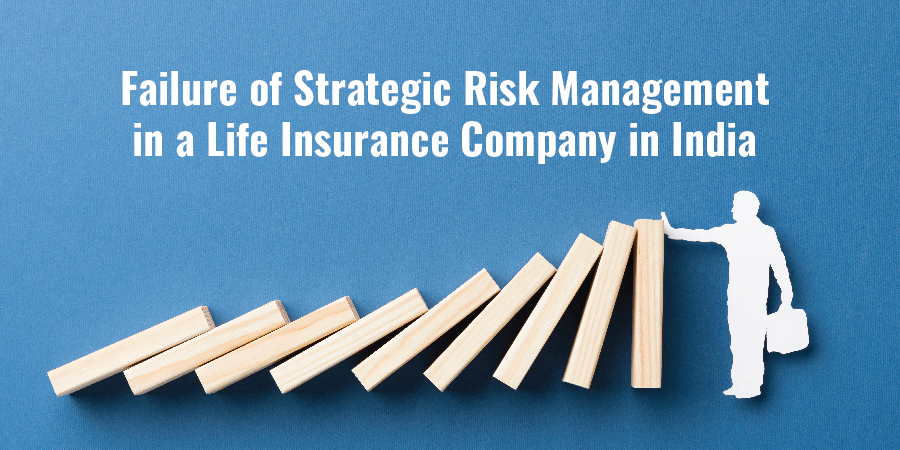

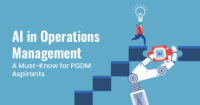
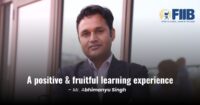

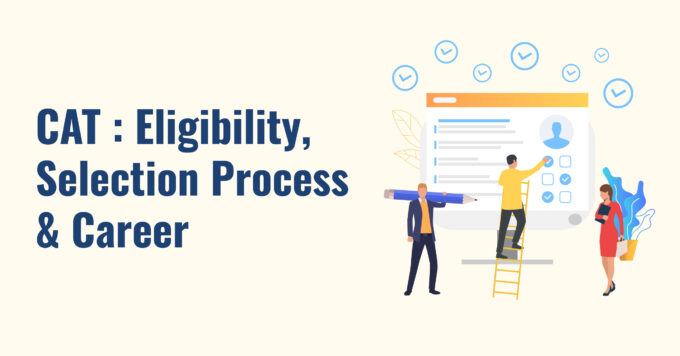
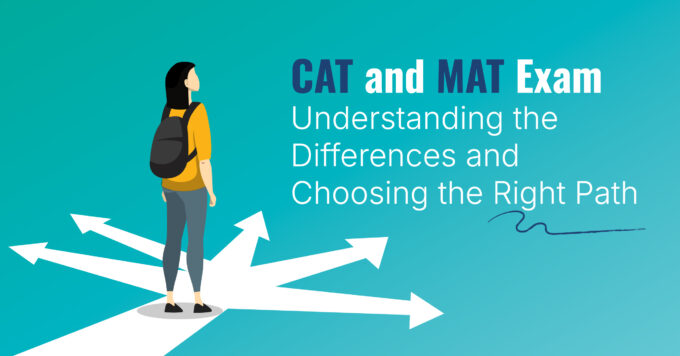
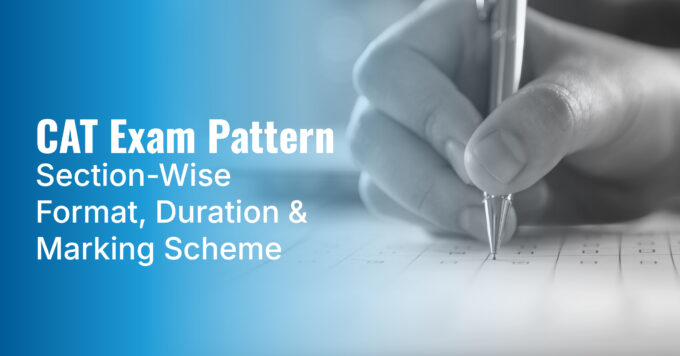






Leave a comment